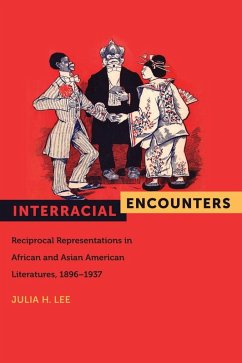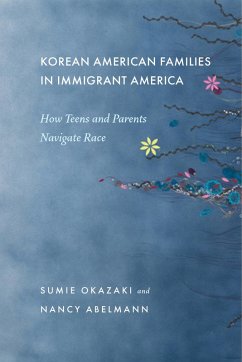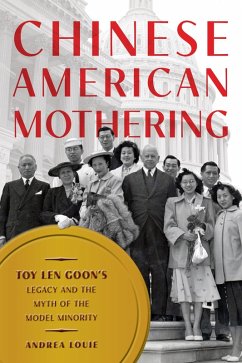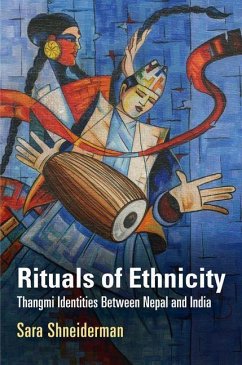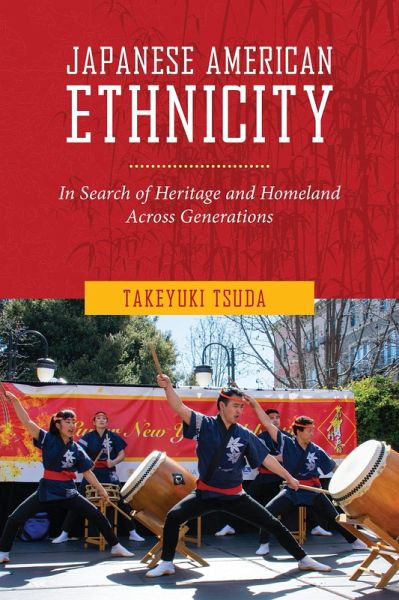
Japanese American Ethnicity (eBook, ePUB)
In Search of Heritage and Homeland Across Generations
Versandkostenfrei!
Sofort per Download lieferbar
23,95 €
inkl. MwSt.
Weitere Ausgaben:

PAYBACK Punkte
12 °P sammeln!
Traces the contemporary ethnic experiences of Japanese AmericansAs one of the oldest groups of Asian Americans in the United States, most Japanese Americans are culturally assimilated and well-integrated in mainstream American society. However, they continue to be racialized as culturally "Japanese" foreigners simply because of their Asian appearance in a multicultural America where racial minorities are expected to remain ethnically distinct. Different generations of Japanese Americans have responded to such pressures in ways that range from demands that their racial citizenship as bona fide ...
Traces the contemporary ethnic experiences of Japanese Americans
As one of the oldest groups of Asian Americans in the United States, most Japanese Americans are culturally assimilated and well-integrated in mainstream American society. However, they continue to be racialized as culturally "Japanese" foreigners simply because of their Asian appearance in a multicultural America where racial minorities are expected to remain ethnically distinct. Different generations of Japanese Americans have responded to such pressures in ways that range from demands that their racial citizenship as bona fide Americans be recognized to a desire to maintain or recover their ethnic heritage and reconnect with their ancestral homeland. In Japanese American Ethnicity, Takeyuki Tsuda explores the contemporary ethnic experiences of Japanese Americans from the second to the fourth generations and the extent to which they remain connected to their ancestral cultural heritage. He also places Japanese Americans in transnational and diasporic context and analyzes the performance of ethnic heritage through the example of taiko drumming ensembles.
Drawing on extensive fieldwork with Japanese Americans in San Diego and Phoenix, Tsuda argues that the ethnicity of immigrant-descent minorities does not simply follow a linear trajectory. Increasing cultural assimilation does not always erode the significance of ethnic heritage and identity over the generations. Instead, each new generation of Japanese Americans has negotiated its own ethnic positionality in different ways. Young Japanese Americans today are reviving their cultural heritage and embracing its salience in their daily lives more than the previous generations. This book demonstrates how culturally assimilated minorities can simultaneously maintain their ancestral cultures or even actively recover their lost ethnic heritage.
As one of the oldest groups of Asian Americans in the United States, most Japanese Americans are culturally assimilated and well-integrated in mainstream American society. However, they continue to be racialized as culturally "Japanese" foreigners simply because of their Asian appearance in a multicultural America where racial minorities are expected to remain ethnically distinct. Different generations of Japanese Americans have responded to such pressures in ways that range from demands that their racial citizenship as bona fide Americans be recognized to a desire to maintain or recover their ethnic heritage and reconnect with their ancestral homeland. In Japanese American Ethnicity, Takeyuki Tsuda explores the contemporary ethnic experiences of Japanese Americans from the second to the fourth generations and the extent to which they remain connected to their ancestral cultural heritage. He also places Japanese Americans in transnational and diasporic context and analyzes the performance of ethnic heritage through the example of taiko drumming ensembles.
Drawing on extensive fieldwork with Japanese Americans in San Diego and Phoenix, Tsuda argues that the ethnicity of immigrant-descent minorities does not simply follow a linear trajectory. Increasing cultural assimilation does not always erode the significance of ethnic heritage and identity over the generations. Instead, each new generation of Japanese Americans has negotiated its own ethnic positionality in different ways. Young Japanese Americans today are reviving their cultural heritage and embracing its salience in their daily lives more than the previous generations. This book demonstrates how culturally assimilated minorities can simultaneously maintain their ancestral cultures or even actively recover their lost ethnic heritage.
Dieser Download kann aus rechtlichen Gründen nur mit Rechnungsadresse in A, D ausgeliefert werden.




